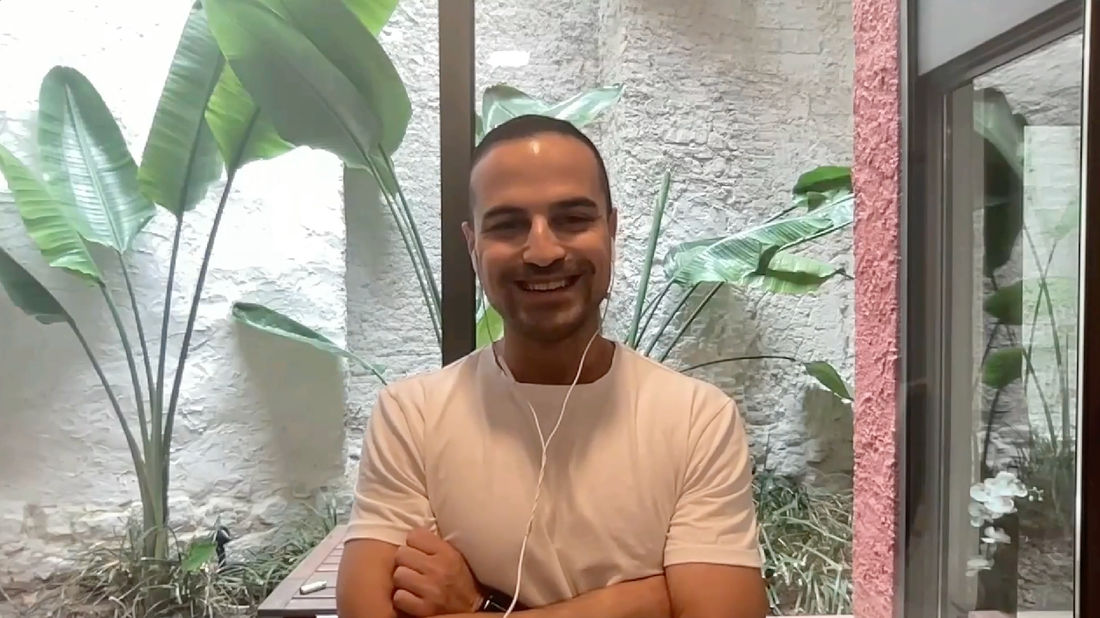Talking HealthTech: 379 – Unlocking the neurosciences with VR. Amir Bozorgzadeh, Virtuleap

Source: talkinghealthtech.com

Provided by:
Talking HealthTech
Published on:
26 September 2023
Virtual reality (VR) technology is showing promise in its potential to disrupt a variety of sectors such as healthcare, education, and wellness. One of the fascinating areas of exploration is the application of VR in improving cognitive health, facilitating learning, and enhancing overall brain well-being. In this episode we explore this groundbreaking intersection, focusing on Virtuleap, a company merging virtual reality with neuroscience. We will delve into the evolutionary journey of VR in healthcare, the mission behind Virtuleap, and how unique features of VR make it a compelling tool for healthcare solutions.
The Transformation of Virtual Reality in the Healthcare Sector
Over the years, virtual reality has shifted from being a futuristic concept to becoming a mainstream technological solution. While initially used in cognitive illness treatment, its applications have diversified to include educational enhancements and overall improvement in brain health. The sector has also seen technological advancements with new standalone VR devices, such as Apple’s forthcoming mixed-reality headset and Meta’s Quest 3, which aim to make VR more accessible and effective in healthcare. These advancements are not merely technological but signify a broadening of possibilities for healthcare applications.
Virtual Reality & Cognitive Health
Established in 2018 after a period of discreet development, Virtuleap has the ambitious objective of blending virtual reality with neuroscience to tackle cognitive health issues, learning challenges, and general mental well-being. The company is spearheading the utilisation of VR in healthcare by making neuroscience and advanced technology available to the wider public, including those in at-risk groups. Their mission is not only novel but also vital in paving the way for more widespread use of technology in healthcare.
Exploring Amir Bozorgzadeh’s Journey and Contributions
Amir Bozorgzadeh has a diverse background that stretches from founding gaming companies to working on social impact ventures. His own struggles with vertigo led him to investigate the capabilities of virtual reality as a treatment option. Although he started without a specific background in VR, Amir took the initiative to deeply engage with the field by contributing to reputable platforms like Venture Beat and TechCrunch. These experiences provided him with a rich perspective on how VR can have critical roles in healthcare and education, beyond mere entertainment.
The Current Significance of VR Technology in Healthcare
According to Amir, we are at a pivotal moment where VR technology is crossing a significant threshold. It’s no longer merely a niche product for gaming but has become mainstream with serious applications in healthcare, education, and even corporate settings. This is reflected in the shift from focusing solely on entertainment to addressing challenges that have meaningful impacts on brain health. The imminent release of devices like Apple’s mixed-reality headset and Meta’s Quest 3 only serves to underscore the future significance of VR in healthcare applications.

Unique Aspects Making VR Beneficial for Healthcare
Virtual reality has some distinctive features that lend it an advantage in healthcare contexts. One notable characteristic is the standalone capability of modern VR devices, allowing for untethered use that adds to the flexibility and convenience for healthcare providers and patients alike. This is especially useful for older adults and other at-risk groups. Another aspect is VR’s immersive quality, which bolsters engagement and retention, thereby proving effective in education and therapy. Additionally, VR can simulate environments to help patients confront and manage psychological barriers like fears, anxiety, and phobias within a controlled and secure space.
Virtual reality holds significant promise in its ability to positively impact cognitive disorders, facilitate learning, and improve general brain health. Companies like Virtuleap are driving this change by making complex neuroscience concepts accessible to the average individual, as well as those who are particularly vulnerable. With the rapid advancements in VR technology and the arrival of new, more sophisticated devices, the prospect of virtual reality in healthcare is not just hopeful but also an avenue teeming with innovative possibilities for better mental well-being and overall health.